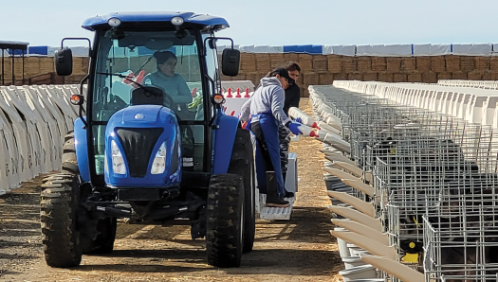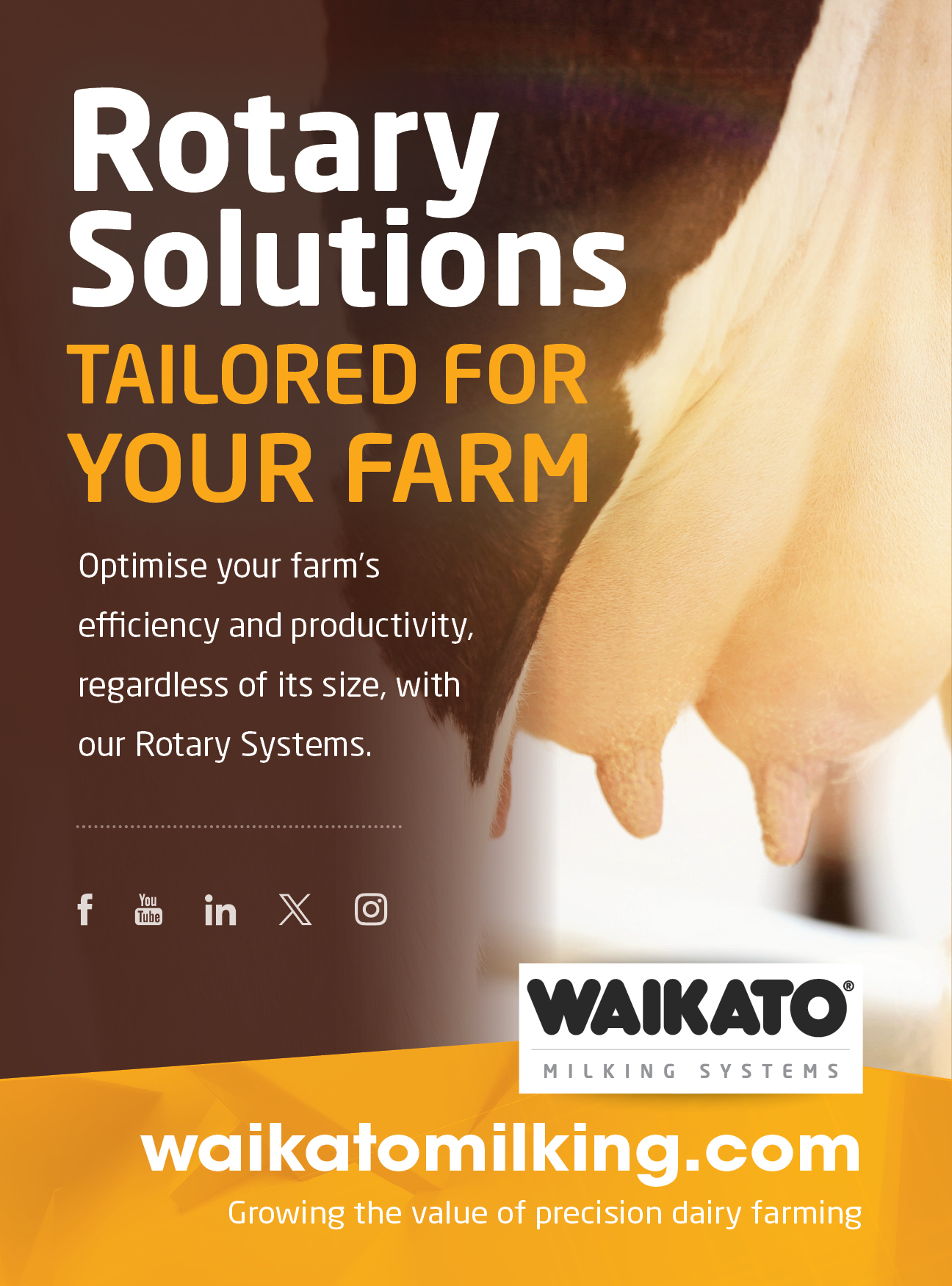Dairy Labor: A Crucial Issue for Many Dairies

By Heather Smith Thomas.
Good employees are often hard to find and keep, and this is a huge problem for agriculture today, especially in the dairy industry; it is difficult to attract and keep dependable workers. Small family-operated dairies often get by with one or two extra people, but larger dairies depend on many good employees to make it work.
Today there are more people looking for jobs than there were during COVID, but now many of them just want a paycheck or two before moving to something else. Some of them go back on unemployment or move to different jobs. Many dairies are trying to find ways encourage employees to stay, so they can retain these entry-level workers. Some dairies address this problem by offering a bonus after a certain length of time, or giving workers time off if they need it to do something important, or provide better housing options, or better job advancement opportunities.
Treating employees as part of the team can go a long way in encouraging them to take pride in their work and stay on the job. This is the case with Liberty Ranch Dairy, near Kuna, Idaho. John Wind is fourth generation on this family dairy farm. “We moved here from California in 2005. I am in partnership with my grandfather (John Wind Sr.), my mother (Cheryl) and my wife Jamie—who has been tremendous support. We milk about 2800 Holstein cows, farm about 900 acres and put up a good percentage of our feed,” John said.
“We are very fortunate to have really good staff. We wouldn’t be successful without them. We are only as successful as the quality of our crew and I’ve been blessed to have a high percentage of my crew stay with me for 10 to 15 years. We have a few positions where there is some turnover, but it’s not consistent turnover. We rarely have anyone work here less than a year or two. All my main people have been with me since we started in this location in 2005. We are nothing without them!”
The managers and workers are crucial to the operation. “I am blessed to have a good group of conscientious co-workers. I don’t refer to them as employees. They work with me and are individuals of high quality who help me and my family with the day-to-day operation. They truly operate this place with the same amount of care and pride as I do. They are part of the team,” John said.
“I don’t know if its luck, but I think I was lucky to start with the right guys who were looking for work. You hire one and think ‘wow’ this guy is very impressive and a good person, and when you have another opening, that guy knows somebody else who needs work, and he brings his brother, who is also a good person, and the next thing you know, you have a crew of family or close friends. All the guys I have right now are part of that culture. We don’t have a melting pot of individuals here; I have a lot of guys who are connected with one another, so it’s like a big family,” he said. A person working here often knows of someone else who would be a good fit.
“We are very incentive-oriented. We give our team members two vacations, and bonuses. Any bonus that I get, or any increase in profit that’s measureable, I share with them. We ship our milk to Lactalis and they give a somatic cell bonus (for low somatic cell count in the milk) and this is shared with the crew and one way to keep them engaged and put some skin in the game for them. If I get a milk quality bonus, they get it, too,” John said.
For crew members with jobs outside the barn, some of the things that can be measured are management-related, such as reduction in death loss during calving, or fewer dead cows or displaced abomasum. “We set guidelines and if we reach measurable goals, they get bonuses. They care a little more when they have a reward for good results. They pay more attention and want to make a difference. The bonus is a big deal to me, and a big deal to them. This gives them some ownership in the process; it means something to be part of the team.”
Communication is also important. “I don’t speak Spanish fluently; I wish I did, but I don’t, so I rely on my manager, Juan Medrano, and I would trust him with my life. Anything I need to convey to the staff, I know it gets communicated accurately. This gives peace of mind. It starts with being able to find the right person to be second in command and I have that, in my manager. He has done a really good job finding good people who want to work with us and with him,” John said.
“He is one of the integral pieces in our success in this dairy and is crucial to this operation, along with his two brothers Victor and Jorge Medrano, and their friend Juan Gomez. The 4 of them have been employed here for over 15 years.”
This doesn’t mean there are no drawbacks, because there are some cultural differences, but for the most part everyone knows their own role in this dairy. The team is very effective and efficient at getting the job done, in a low-stress environment for them. “If you get a system that works and is consistent, you don’t have to worry about guys not showing up or some guys missing their days off because of a no-show. When things are consistent, everyone gets their time off. The hours have been pretty consistent, so nobody is overworked. I think this helps a lot, in retaining staff people.”
John feels fortunate to be in an industry in Idaho that has a lot of passionate, hard-working and honest producers. “They are active in their community and work hard at finding solutions for the industry. I take pride in the partnerships we have, not only with the crew that’s been with me for a long time, but I’ve also had the same veterinarian since we moved here in 2005—Herd Health LLC. I also work with a team at Standard Nutrition; they have been fantastic. I have a good core group of consulting partners who know what our standards are, and they do a good job helping us achieve all our goals. I feel that I have a good team to support me, in every aspect.”
As in any dairy, there are good days and bad days. “There are days my co-workers may not like me very much! We had major challenges during the severe cold and snow in January this year, but I didn’t get a complaint from anyone. They just show up and dig in and do the best job they can do, to meet the challenges.”
The whole crew in this dairy really cares, and pays attention to what’s important; they take an interest and do whatever needs to be done. “They can also see a path of progression. They start out in the barn as a pusher, then graduate to where they are pushing and milking, then become a milker, and the next time I need someone outside, it’s usually the guy who has been in the barn the longest—who gets to come work outside.” They always have something to look forward to, when they do a good job.
“I have some leadership faults and some people would say I am too nice to everyone, but at the end of the day it pays off. My blood pressure doesn’t rise! I trust that I have the right guys doing the right jobs, to help us be as efficient as possible.”
Double A Dairy, near Jerome, Idaho also depends on a good crew of workers, milking about 18,000 cows in two locations. Management is divided into multiple departments with a manager for each: farm management, maintenance, calf ranch, fresh cow barn, herdsman, feed manager, and the parlor and milk quality manager. Altogether the dairy has more than 300 employees.
Jason Anderson, General Manager, says the owners–Ron and Don’ Aardemas–do a great job; they care about their employees and their cows and are very passionate about what they do. “They are humble people and don’t brag about their accomplishments; they simply work hard,” Anderson said.
Dairying has become more challenging today, as has all of agriculture. As times change, the ability to support multiple families on a limited amount of acres or animals is difficult. A few decades ago a small dairy could support a family, but now a dairy usually needs hundreds of cattle and more acres. “The margins are so small, per unit, that the only way to be profitable is to maximize units,” he said.
Farms and dairies have to grow, and be efficient and innovative. Prices a farmer gets for his product are not keeping up with costs. Feed, fuel, labor, etc. keep climbing.
“Entry level employees are paid $15 to $18 an hour. We are competing with McDonalds and Chick-fil-A for workers. We used to have people who worked very hard every day and were happy to have a job. Now there are many people who don’t have the same work ethic,” Anderson said.
Armando Cordero is Double A Dairy’s parlor and milk quality manager and has been instrumental in obtaining and keeping good workers. “He’s done a great job; he’s a great boss, and he works alongside all his employees. He has very low turnover, but it’s because he treats them extremely well,” Jason said.
Cordero has 80 people in his department including the milkers, cow-pushers, people in maintenance, hospital crew, and parlors supervisors. “In this dairy we also have a human resource department helping with all the paperwork, animal care and safety training videos for all new employees,” Cordero said. “We are thankful for all the people who have been involved in the past to create our policies and help create the employment training. We have not done this by ourselves; it’s a team effort. With the managers, veterinarians and outside experts, together we create good protocols and policies that work very well,” Cordero said.
He has been working for Double A Dairy for 23 years. He is from Mexico and has a veterinary degree from Mexico, but is not licensed as a veterinarian in the U.S. The veterinary background and knowledge helps him with the cattle, however.
“Knowing that people look for work in order to support their families, we established a good salary start and it increases in the following months. This is one way we attract good employees; this helps encourage people to want to stay and work. But the salary is not the main reason people stay with us. We provide a good work environment; humane and respectful treatment; an understanding that there are family or personal emergencies and that they can have extra days off without worrying about losing the job; and flexibility of work schedules to accommodate the needs of their families,” he said.
“About 95% of our workers are Hispanic; we have people from Mexico, Peru, Salvador and Honduras. We face cultural differences so part of the training includes explaining these differences especially in the translation of words between one country and another to avoid misunderstandings or people becoming offended. We are like a family, when they can feel that we are taking care of them, then they try harder to put all that training into practice” he said.
One way to find more workers is through the people who are already working here. “If we have an opening, we ask our crew if they know somebody who is looking for work. This is a good way to find people to fill a spot. We also use social media and post job opportunities in local stores,” said Armando,
“Our goal is for employees to love the cows and like the job. We spend a lot of time training our employees. We used to have a high turn-over, especially in the barn with the milkers because this job is physically demanding. To try to reduce turn-overs in that position we give them a little break in their shift. We used to wash and sanitize the milk line at the end of the shift, but now we do it in the middle of the shift so the milkers can have a 15–20-minute break while it is being done; they can have lunch at that time if they want. They can enjoy a break, eat lunch, and chat with their co-workers,” he said.
“We care about them, and their families, and help them put their training into practice. We try to be flexible; we have 2 extra milkers for covering vacations or special need of people so it is easier for us to let someone take a day off and we can still finish our jobs in the dairy,” said Armando. In a dairy this large, it helps to have extra people; the work is tiring and sometimes they need extra workers.
“I care about the company and the workers and they are now performing much better; they feel like they are a part of it and not just employees. We spend time talking with them, asking about their families. If some of them are looking for a house to rent we ask around to see if there are houses available. We try to work for the people who work for us. If they can feel that we care for them, then they care for the cows,” he said.
“We put a lot of effort into training—which is about protocol, cow care, and safety. We don’t want people hurt, so we are very concerned about safety. We provide safety vests and glasses when they are working in the barn, because most of the workers don’t have background experience working with animals. We teach them to not get too close to the cows and to always be careful and think ahead.”
Last year Glanbia Foods nominated this dairy for an award–for workforce development. “Receiving this award was important for us, to have people recognize that we are trying to do the best we can for our people, and that the workers are important for our industry. They deserve it. They come looking for a job, but we manage to get them to love the cows and respect the company and want to do the job. We are happy that people outside the company recognize that we are trying to do the best for the industry we love. My part of the company provides jobs for 80 people and we want to do our best for their families as well as for the cows.”
There are many misconceptions about the dairy industry and how dairy cows and employees are treated. “We want to change those misunderstandings and it’s good to have recognition for the work we do. They chose me to represent Double A because I have the department that generally has the most turnover in workers because the work is so physically demanding, but this award is possible because of the great teamwork among all the areas that make up Double A Dairy—and we’ve done our best to resolve some of the problems,” Armando said.
Anderson says the atmosphere at this dairy helps everyone feel like part of the team and that the dairy is theirs. “The owners are passionate about their people as well as the cows, and they take good care of their employees. They want their people to take pride in what they work for. I talk to all of our managers regularly about being ‘school bus ready’ and what I mean is we are proud of what we do and we want tour busses and kids to come to the dairy and see what we do. They can gain a better understanding of our industry and where food comes from.”



